I Almost Gave Up On Tales Games. Almost.
By generic_username 18 Comments
[Spoilers for the first hour or two of Tales of Berseria ahead, along with some minor spoilers for the early to middle parts of the story. Minor spoilers for the general story of Tales of Zestiria along with spoilers about Zestiria's backstory, too]
If you’ve read any of my previous posts, you’ve probably gathered that I’m way into the Tales games. If you haven’t read my previous posts, well… now you know. I consider myself a fan of the series, having played most of them, including a few somewhat more obscure titles. Tales of Symphonia is one of my favorite games of all time, and Tales of Vesperia and Tales of the Abyss probably make it somewhere onto that list, too. All that being said, I’ve had some anxiety about the series for a little while.
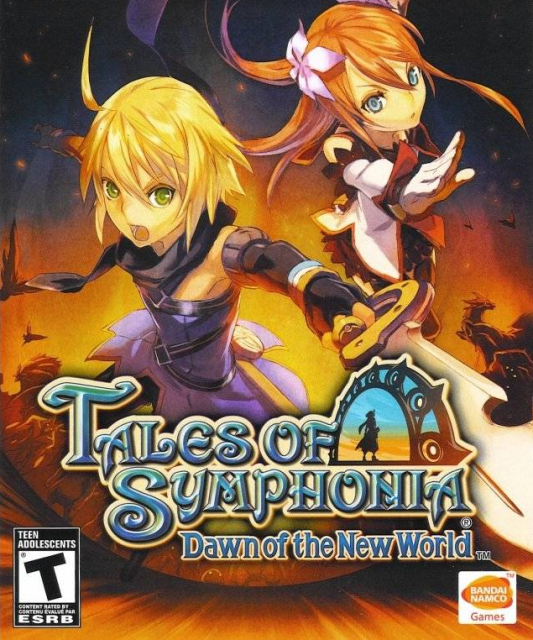
You see, there are almost as many Tales games I don’t like as there are ones I do, maybe more. This on its own is not particularly stressful; there are plenty of franchises that have numerous entries I dislike. It’s just that… most of the Tales games I dislike are the recent ones — I either bounced off of or ignored three major Tales games in a row. For me, Tales of Xillia, Tales of Xillia 2, and Tales of Zestiria were almost completely devoid of anything that made me interested in the series. In the case of Xillia 2, I couldn't bring myself to play it at all.
I bought the first Tales of Xillia at the same time that I bought Tales of Graces F. I figured it would be fine; there was nothing wrong with having more games to play, after all. I played a lot of hours of Xillia, and it never managed to grab me. I found the characters to be some of the least interesting in the series, and aside from that, the writing gave me no reason to believe any of them would even be on this quest in the first place. Put a gun to my head and I still couldn’t tell you why Jude was following Milla on her journey. The same goes for most of the other characters, too. They seemed to only be helping out because that was the way the story was written. Generally speaking, the characters’ wants and needs should be what drive the plot forward, but here, the plot moved the characters along its set path, and they never really pushed back.
Maybe I’m being too critical of Xillia. I know it has its fans, and I’m sure that the ending hours of the game make the cast much more likable. But I never made it to the end, because I had another Tales game that quickly took priority, sating my hunger for Tales content enough to let me put Xillia down. Tales of Graces is a very flawed game, but it’s a flawed game that I like a whole lot. Where Xillia had personalities who were just sedate enough that I could see nothing but what they lacked, the cast of Graces consisted of cookie-cutter characters copied directly off the pages of the Anime Tropes Handbook. Still… that lack of depth made for a fun ride that didn’t ask much of you, and the completely unoriginal character archetypes they used happened to be some of the likable ones. Unlike Xillia, Graces gave me something to hold onto before taking me for a ride; Xillia needed me to find those handholds on my own.
The next big Tales game (that I’m aware of, though my timeline is probably wrong here) was Xillia 2. Tales games usually don’t have direct sequels or prequels; the major releases almost always take place in entirely new worlds, completely unrelated to and disconnected from the other games in the series. My bad experiences with the first Tales of Xillia made the release of Xillia 2 dead on arrival for me, though. I have yet to give it a shot, so it could be fantastic for all I know.
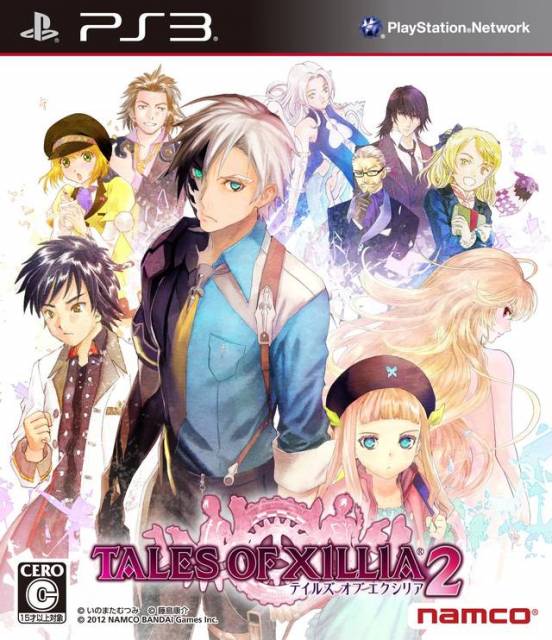
…I honestly have no interest in ever finding out.
It’s hard to believe that Xillia 2 is a game I want to play — if I look at the direction the series was going with the games that came out right before and right after Xillia 2, and assume it lands somewhere between them on that line… well, that’s not a great place to be in my book. I dislike both games it’s sandwiched between; Tales of Zestiria, the game that followed Xillia 2, never really did it for me, either.
Honestly, though, “dislike” is slightly too strong a word for my feelings about Zestiria. It’s actually totally serviceable. It even goes back to the Tales tradition of obstinately clinging to anime character tropes, which is a tactic that I think works for Tales more often than it doesn’t. But it doesn’t work here, because Zestiria is an incredibly straightforward narrative experience in every single way, not just in character writing. There are a few minor curveballs in the story, but it generally doesn’t do anything to surprise you. The closest thing to an emotional reaction I had while playing the game was seeing main character Sorey and his companion Mikleo be best friends in a very endearing way. Little else about the game really sticks (aside from the opening movie theme song) and it has incredibly poor pacing, with urgent story beats having multiple dungeon crawls take place before they actually get resolved. Even the environments are uninteresting, which is a shame because the vibrant and creative worlds present in Tales games are one of their best features.
I was starting to worry that maybe I wouldn’t like a new Tales game ever again.


When Tales of Berseria was released over a year ago, I didn’t play it. There were a lot of reasons for that; I mean, my PS3 is no longer functional, and I don’t own a PS4 or a gaming PC either. Not owning the platform a game is released on is a pretty good reason not to play it. Still, had my enthusiasm for the Tales series been what it used to be, I would have bought a PS4 (or 3) to play it. I would’ve read previews for it, and counted down the days to its release; I would have preordered it and driven out to the local Gamestop to pick it up, because I probably would have needed to own a physical copy of the game to fill some deep emotional void inside me. Instead, I let it slip by, and eventually picked up the mediocre but safe Tales of Hearts R on Vita to satisfy my Tales cravings.
And that was fine. I wasn’t happy about it, but it’s not like falling away from a franchise is the end of the world. I was a fan of Tales games, but my affection for the franchise wasn’t a part of my identity, the way my love of a certain courageous green-clad hero was. I enjoy Tales games quite a bit, but they didn’t change my life the way The Legend of Zelda did. So it was fine. It was fine to let go of this thing that I loved. It wasn’t a great situation, but it was one I saw coming and had time to prepare for. I would no longer be a fan of the Tales series, and instead a fan of a few of the Tales games. Not that major of a shift.
I honestly thought I might not ever play Tales of Berseria, but thanks to the Family Sharing feature on Steam, I noticed that my younger brother bought the game and had it available in his Steam library. I have a pretty shitty laptop; it’s terrible for games, and the prospects of Berseria running at anything resembling a playable framerate were pretty hopeless. Still, I booted it up, turned all the settings all the way down, and gave it a shot. And it was almost there. When I lowered the resolution a little, which would probably be considered “unplayable” by a lot of people’s standards, it actually ran totally smoothly. It wouldn’t be the ideal way to play Tales of Berseria, but I wasn’t even sure I wanted to play that much of it anyway. I was half-expecting to drop it six hours in and leave it alone forever. But I didn’t.
Tales of Berseria wound up grabbing me pretty quickly. There are some early scenes of our heroine, named Velvet, that are a little cringe-worthy in their aggressively dark attitude, and those scenes are immediately followed by some equally rough sickly-sweet flashbacks of her happily tending to her anime-sick little brother. Get through that, however, and you are soon shown Velvet’s life ruined in a single moment, and… it’s actually kind of incredible. You see how the world changed for her — how she changed — when her mentor Artorius commits an unforgivable act of betrayal. That jarring tonal shift from the beginning suddenly makes total sense. Her fall from “happy anime teenager” to the uncaring, unapologetically violent and bloodthirsty character she becomes is completely believable, and it happens in an instant.
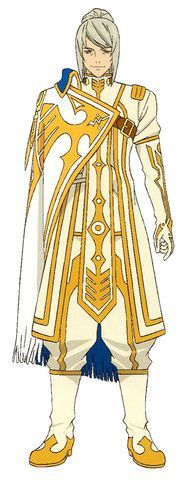
Her fall is believable because the game does an excellent job of setting up the villain in that instant. Velvet’s quest in Berseria is one of revenge, at any cost, and you actually want to see her succeed in this. You want her to tear that motherfucker’s throat out of his neck. I am not a violent person, but he is vile. The English voice actor that plays Velvet does an incredible job at instilling empathy during the betrayal scene, too. Her screams of pain and anger sound raw; they are actually emotional, making the player not only understand what she’s feeling, but feel it themselves a little, too. If that wasn’t enough to make you want to see Artorius become a corpse, not only does he go unpunished for his actions, he is regarded by the rest of the world as a hero for them. Velvet seems to be the only person in the world who wants to see him die, and it’s painful to listen to other people speak about their “Shepherd” with reverence in their voices.
The intro was great, but a great intro is not enough to hold my interest for 40-plus hours. Fortunately, Tales of Berseria has a lot more going for it. The game’s playable characters are both fun and likable — Beseria has a memorable cast of anime stock-characters that would be awful if they weren’t done extremely well. This is kind of the case for all of the best characters Tales games have to offer: take an obvious trope, build on it a little, and then let that character develop over the course of the (often crazy) story into something special. These cookie-cutter characters are the number one thing I see that puts people off when it comes to Tales games though, which is completely reasonable; if you’re not a fan, I totally get it. I personally think the Tales games are excellent at using character archetypes as a tool rather than a crutch, and Berseria is a great example of this kind of writing being done well. Also, there’s a little more going on with the characters in Berseria that makes it special, even among Tales games.
While most Tales games have the heroes on the wrong side of the law for some stretch of time, Tales of Berseria’s “heroes” aren’t ever really heroes in the first place. The cast of Tales of Berseria consists mostly of fucking scoundrels. The people who aren’t opposed to Velvet’s goal of killing the so-called savior of the world are people who hate the world he saved. Most of the party you fight with is made up of criminals with selfish motivations, selfish motivations that are far more believable than the selfless desires that drive most JRPG protagonists. Velvet wants revenge on Artorius. Rokurou wants to prove his worth by killing his older brother who thinks he’s worthless. Eizen wants to locate his pirate crew’s captain who he believes is being held captive by one of Artorius’s goons.

By leaving behind the typical Tales narrative, the one that follows naive heroes trying to save the world, they drop their stock-characters into a completely different kind of group dynamic. They have very little of that starry-eyed naivety that defines a lot of Tales heroes, instead being world-weary and cautious, quick to distrust others and careful not to reveal too much about themselves. The self-interested and occasionally even amoral worldview expressed when they interact with each other and the world around them brings something new to the Tales series. The familiar feels fresh again while still being familiar — the tropes are used as a comfortable introduction to a setting and story that is relatively new to Tales.
I say the setting is “new to Tales”, which is interesting because oddly enough, the world that Berseria is set in isn’t new to Tales at all. Tales of Berseria is actually a prequel to Tales of Zestiria, and as I mentioned earlier, I don’t like that game a whole lot! There were a lot of things about Zestiria that I found completely uninteresting, the world and setting being among them. I might not have even bothered with Berseria had I known it was set in the same place, but I went in blind, only piecing together its relation to the previous game a short ways in. (And yes, as a self-proclaimed Tales fan, it should have been obvious to me because they use a lot of the same terminology, but I had honestly forgotten so much of Zestiria that it took me a while to actually make the connection between the two games.)
One of the biggest problems with Tales of Zestiria is that the story it tells is so incredibly straightforward. It’s good-versus-evil and there’s really not any ambiguity about whether or not the good guys are doing the right thing. They’re the Shepherd’s group, and they’re gonna beat the manifestation of all evil known as the Lord of Calamity. A number of Shepherds have come before you to face off against the repeated rise of the Lord of Calamity a thousand times before you; you’re just doing it again. Zestiria has you seeking a more permanent solution and an end to that cycle, but it my opinion, it makes for one of the more boring versions of the chosen-one-versus-an-ancient-evil story I’ve played through.
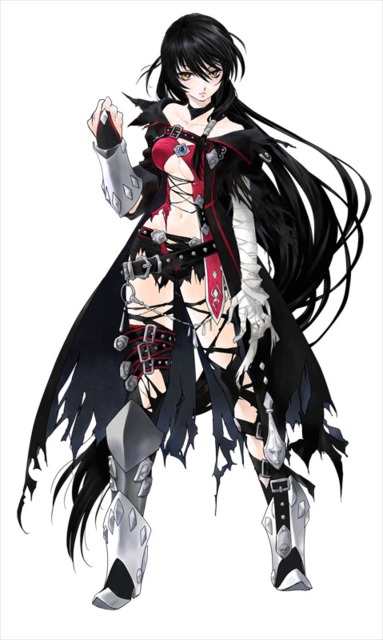
This doesn’t bode well for Berseria if it takes place in that world, but Tales of Berseria is an excellent prequel. It does everything a good prequel should do: it’s valuable as a standalone experience, it’s made better by having knowledge of the later story, and it even serves to make the other game better after playing through it. See, the boring, black-and-white, good-verses-evil story that Zestiria tells is uninteresting on its own, but Berseria tells the story of the world when the cycle of "Shepherds defeating The Lord of Calamity" began. And you don’t play as the first incarnation of the Shepherd. You play as the first Lord of Calamity.
It’s a good twist on the expectations set by Zesteria, and it adds a bit of moral ambiguity to a world I thought was black-and-white. Velvet, our one-and-only Lord of Calamity, rejects the cold necessity that drives Artorius because she is driven by irrational thoughts and feelings, like most people are. The parts of her that make her selfish, violent, and resentful; the parts of her that are “evil” in the traditional sense; these parts of her are exactly what make her able to confront Artorius’s heartless, utilitarian salvation. Tales of Berseria posits that human beings are selfish, prideful, greedy, and arrogant, often doing or saying awful things when they get emotional… but that’s okay, because those flaws are what make us human. Those flaws are what make us empathetic. Those flaws let us accept the flaws of other people.
I mean, it’s not anything you haven’t heard before, I know. I have heard the message this game preaches a million times before, from media screaming it as loud as it possibly can. And yet, when Tales of Berseria says it, I actually listen. The person saying that flaws are what make us human isn’t some selfless hero acting for the sake of other people. The person saying it is a man who wants to kill his brother for the sake of his wounded pride. It’s a pirate who robs people for the sake of personal gain. It’s a woman who would throw away the entire world if it meant killing the man she despises. The heroes of Tales of Berseria are deeply flawed and selfish, but they don’t need to be anything else.
I absolutely loved Tales of Berseria. The game has some problems, and maybe I’ll address those another time, but overall, I found the game very satisfying on both a narrative and a mechanical level. Playing and enjoying Tales of Berseria was a unique experience because the game being good… it actually meant a lot to me. Almost every Tales game that has been released in the last good number of years has left me disappointed, and I was legitimately losing interest in the series altogether. I was afraid that the apparent shift in direction the series had taken was just not for me, and that each successive entry would appeal to me a little less than the last. Thankfully, Tales of Berseria proved that the series still has a lot to offer me, and that the last few games were just weaker entries in the franchise (as far as my personal tastes are concerned.)
Honestly, I felt kind of… well, kind of relieved when I played this game. It was a relief to know that this franchise that I’ve loved for over ten years wasn’t dead to me. I thought I was losing a bright spot on the horizon. It was nice to look forward to Tales games. When there was school or work or an appointment looming over me, making the future feel like something to dread, I could at least be excited about a new Tales game. Losing that was much more disheartening than any sadness I felt about losing my attachment to these games.
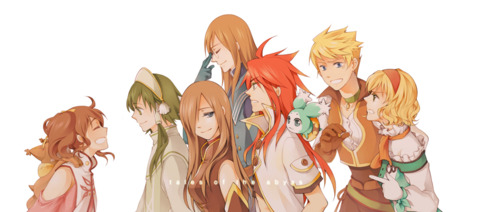
I found myself wearing a stupid grin when I played Tales of Berseria. It was partially because the game was good, and I was having fun playing a good video game, for sure. That wasn’t the whole reason, though. I was happy to have Tales back. I was happy that I could keep holding on to this series that I thought I needed to let go of. There’s something extremely comforting in waiting for something familiar. Some people have TV shows to look forward to, either waiting for episodes to come out one by one, or waiting for Netflix to drop a new season every now and then. Waiting for game releases fills the same role in my life. I mean, it’s hard to live by a life calendar that only has the important stuff on it. Writing in a few frivolous things to anticipate and prepare for makes it easier to handle the important stuff when it comes.

I figure it would be good to end this blog post with a question so… are there any franchises that you used to love that you just don’t enjoy anymore? Are there any that have managed to pull you back in? I’m actually interested to hear if anyone else has had an experience like this, where your feelings for a franchise have faded, but then a new entry managed to win you over. I’m curious if that feeling brought anyone comfort the way it did for me, or if I’m just weird when it comes to this sort of thing.
[Pirate Velvet screenshot pulled from here, all others are either official art or are pulled from Giant Bomb.]
[Quick thing I wanted to clear up: that betrayal I mention when talking about Tales of Berseria, that happens in literally the first hour of the game. It was not the huge spoiler it appears to be, if you were worried.]
